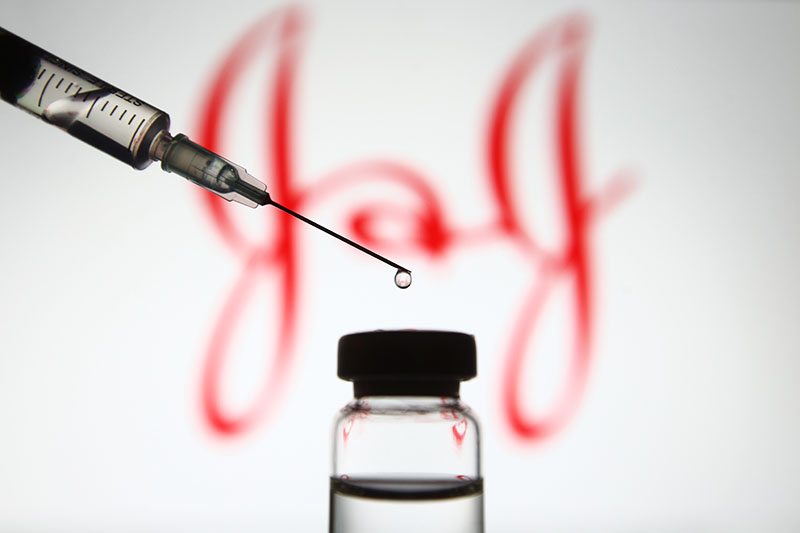
U.S. health authorities paused the distribution of Johnson & Johnson’s Covid-19 mRNA vaccines to investigate reports of blood clots.
The U.S. Food & Drug Administration (FDA) and the CDC announced the move on Tuesday after reports of the clotting disorders.
Six women between the ages of 18 and 48 complained of blood clots in the brain within two weeks of receiving the Johnson & Johnson single jab vaccine.
Only one woman reportedly died from the clotting disorder in March.
The FDA tweeted on Tuesday: “We are recommending a pause in the use of this vaccine out of an abundance of caution.”

The six women were diagnosed with a rare blood clotting disorder called cerebral venous sinus thrombosis (CVST).
The six women suffered blood clots in the brain, combined with low levels of blood platelets (thrombocytopenia) that caused hemorrhaging (bleeding disorder).
Should You Be Worried?
If you received the Johnson & Johnson single jab vaccine, it’s important to know the signs & symptoms of blood clots or bleeding disorders:
People who received the J&J vaccines and experience the above signs and symptoms should notify your doctor or healthcare provider immediately or go to the emergency room.
The CDC advised against doctors treating the condition with heparin because heparin is a blood thinner and could make the condition worse.
“If someone ends up with a very severe headache or any type of shortness of breath, pain in their leg, or severe pain in their abdomen, they would want to seek medical attention,” Dr. Peter Marks, director of the FDA’s Center for Biologics Evaluation and Research, said during a press briefing on Tuesday.
For people who got the vaccine more than a month ago, the risk “is very low at this time,” Dr. Anne Schuchat, principal deputy director of the CDC, said Tuesday.
FYI: An earlier version of this article reported that six women died from blood clots. Only one woman has died.





